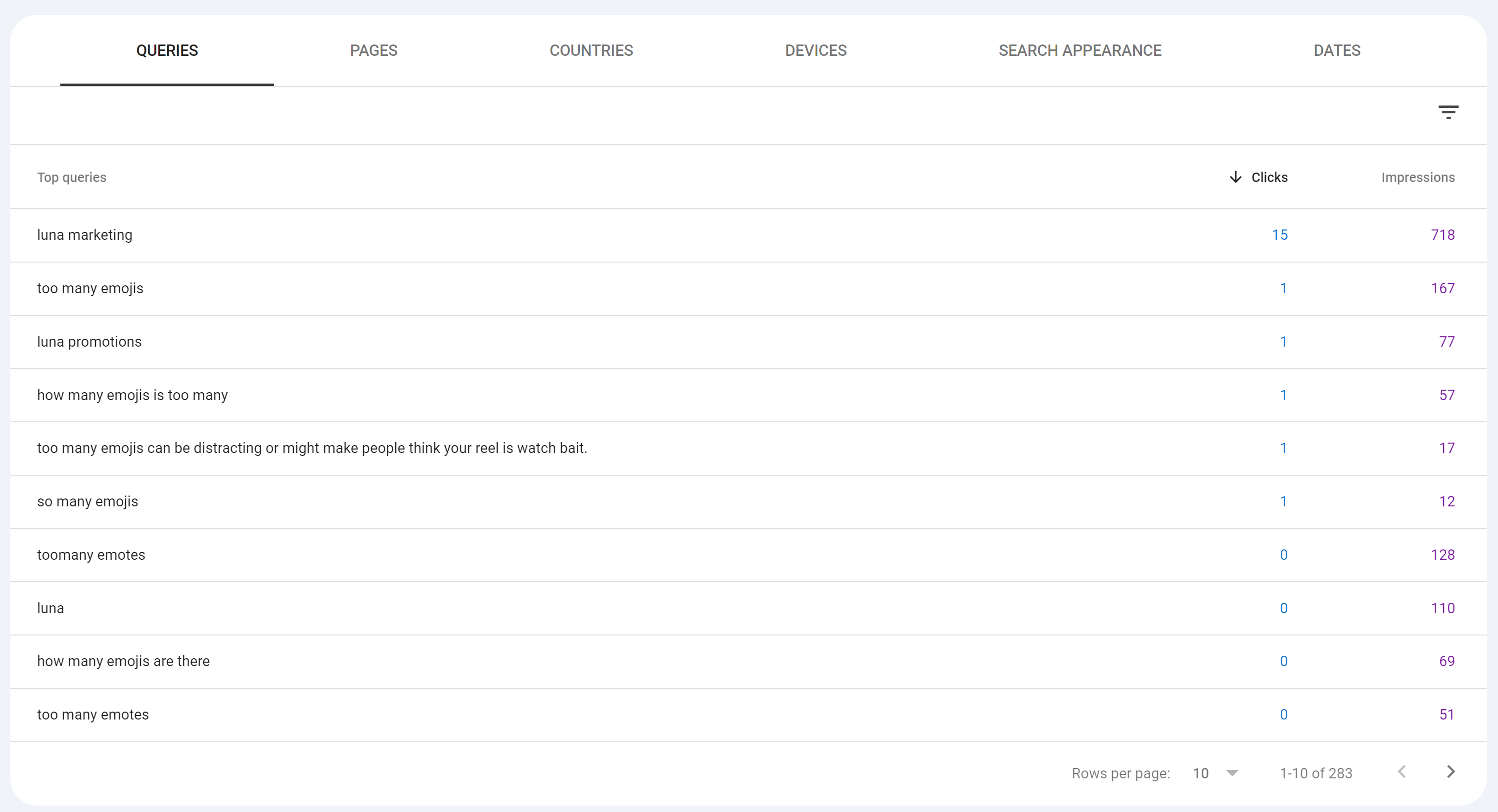Back in June 2023, whenever we were scheduling some reels using Meta’s Planner when a wild notification appeared:

That single notification inspired the one article that, to this day, keeps bringing traction to our blog: our article about EMOJIS.
We would have never imagined that an article written in the heat of the moment (it was honestly hilarious—and a bit infuriating—to see Meta’s warning when we had written only ONE emoji) would have been a top performer, but the reality is, that article reminded us of something very important to consider when writing a Blog for SEO purposes:
Keywords MATTER.
What Are Search Queries?
In simple terms, search queries are words people look for online. Anything you type on either Google, Bing, Yahoo (does anybody still use Yahoo for searches?) or even on Social Media to try and find certain content is a search query

They are the REAL DEAL—and sometimes they might not even be a proper phrase—according to Google’s blog, one out of 10 search queries is misspelled. Regardless, chances are—misspelled or not—people will get the result they are looking for.
Are Keywords The Same As Search Queries?
In essence, yes, they are: keywords can be search queries. The technicality here is that keywords are what you expect people to search for to get to our content: for example, in the ideal world, we would love for people to search for “Too many emojis can be distracting or might make people think your reel is watch bait” and get to either this article or the Emojis one, but in reality, the search queries have been quite different:

If you take a look at those search queries, you will see the phrase itself being one of the first ones, but you will find things like “lookout emoji”, “too many emojis meme”, “emoji 👠”, “lots of emoji”, “tip emoji”, and even “🤔🧐 meaning” in our list of Search Queries. Keywords are more like a wishlist that might or might not bring the results you expect.
How To Properly Use Keywords on Your Content
Let’s start by stating the obvious: not all strategies nor all keywords will work for everyone. Determining what keywords to use depends on your industry, audience, and the type of content you share. Doing Keyword Research should ALWAYS be your first step.
Once you have your keywords, do not add them all to the content without thinking of the placement—you do not want to look like one of those annoying people on Twitter/X who simply writes every single trending topic at the end of their Tweets/Posts to “increase visibility—we are trying to avoid keyword stuffing! Look into placing your keywords strategically throughout your content:
- Put some on your title
- Add others to the headings
- Don’t forget the meta descriptions!
- And naturally within the body of your text.
Using Long-Tail Keywords—which can include the smaller, more specific ones— might be useful: for example, instead of just doing a single word, you could use a phrase containing that single word. Going back to our emoji example, instead of using just the word “emoji” the whole phrase “Too many emojis can be distracting or might make people think your reel is watch bait” yielded better results. You can take examples out of your Keyword Search of longer phrases with lower competition: while they may have lower search volume individually, long-tail keywords.
Does This Mean I Should STOP Using Single Keywords?
Of course, no! Silly you 🤭 SEO isn’t about abandoning single words altogether. It’s more like learning to play the SEO game with finesse and strategy.
Nailing SEO and learning to use keywords appropriately is an art. SEO changes constantly, and chances are that you will NEVER stop optimizing your site and content to be SEO compliant. That’s the beauty of SEO—it keeps us on our toes, encourages creativity, and pushes us to find the perfect balance between search engine algorithms and user experience.
The key points of your SEO strategy should be:
- Experiment
- Analyze
- Refine
Remember, SEO is not a one-time fix but an ongoing journey of adaptation and improvement.






